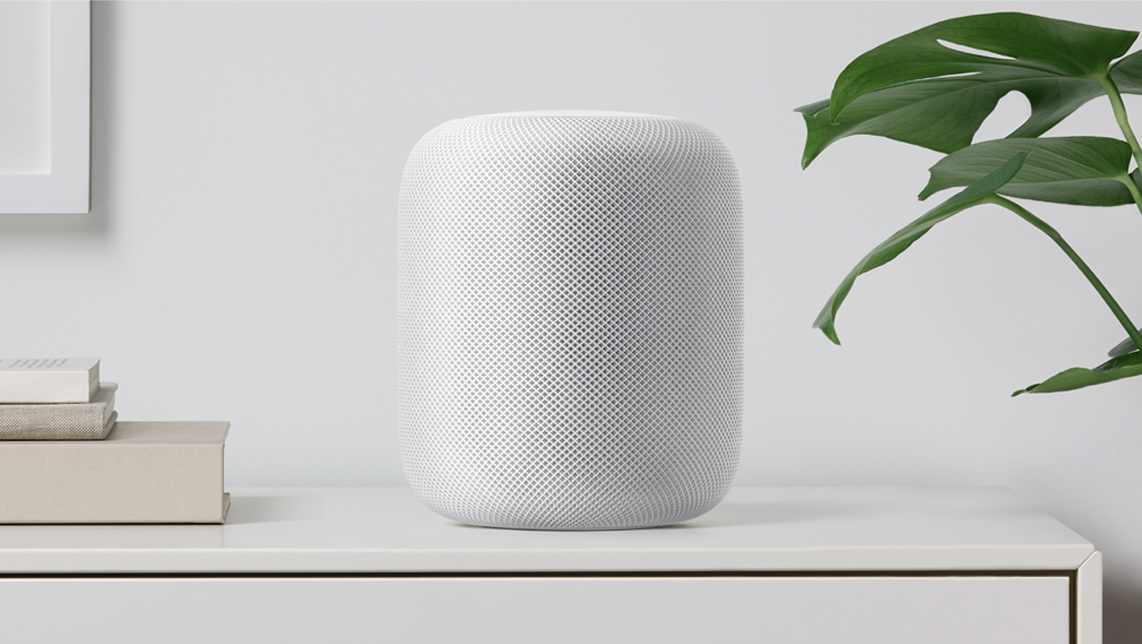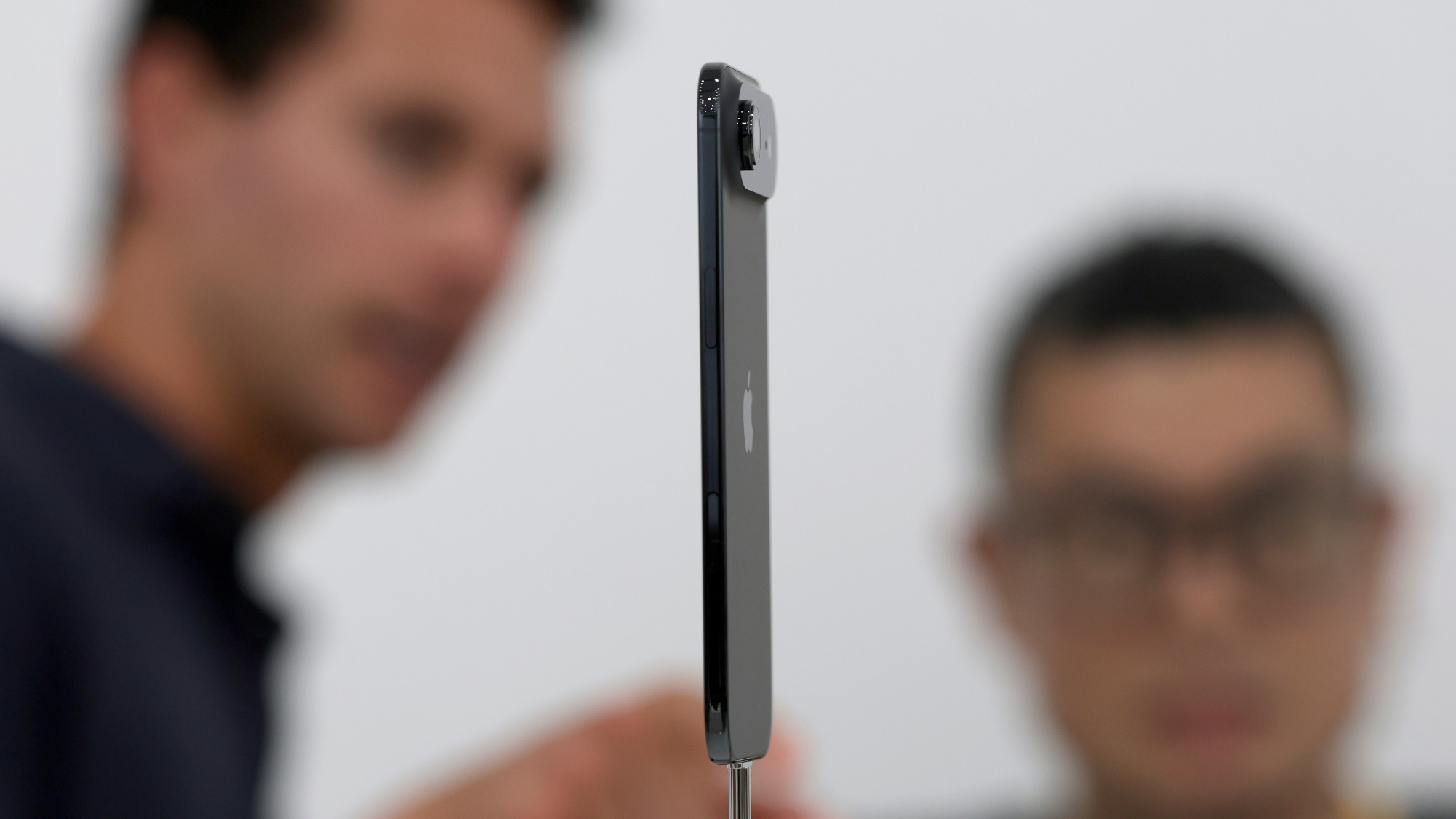Apple HomePod reviews: is it worth it?
Critics praise the speaker’s sound quality but is it a match for Amazon Echo?

A free daily email with the biggest news stories of the day – and the best features from TheWeek.com
You are now subscribed
Your newsletter sign-up was successful
Now that Apple’s much hyped iPhone X smartphone has been released, fans have turned their attention to the company's latest product.
The Cupertino-based company is determined to catch up with Amazon and Google, which dominate the smart speaker market, with the launch of its new HomePod.
The HomePod, which boasts a premium design and voice-activated controls, is Apple's first attempt at building a smart speaker. It doesn’t come cheap, though, as the device will cost significantly more than its rivals.
The Week
Escape your echo chamber. Get the facts behind the news, plus analysis from multiple perspectives.

Sign up for The Week's Free Newsletters
From our morning news briefing to a weekly Good News Newsletter, get the best of The Week delivered directly to your inbox.
From our morning news briefing to a weekly Good News Newsletter, get the best of The Week delivered directly to your inbox.
Here’s everything we know so far:
Reviews
Apple has taken “its own sweet time” to enter the competitive smart speaker market, says What Hi-Fi?, but being late is fine “if you’re the life and soul when you arrive”.
The HomePod is just that, according to the magazine. The new Apple speaker is “great at honing in on and delivering the essence of everything you play through it”, delivering deep bass notes without compromising on clarity.
A free daily email with the biggest news stories of the day – and the best features from TheWeek.com
The device can be controlled through the Siri voice assistant, and there are also “rudimentary” touch controls, says The Daily Telegraph.
Siri works seamlessly with the Apple Music streaming service, allowing you to select songs using voice commands and to ask for information about certain albums and artists, the newspaper adds. Apple Music also creates “more interesting playlists” than its rivals, the Amazon Echo and Google Home.
The HomePod is easy to set up, says Expert Reviews. All you have to do is plug the device into a power socket and hold your phone next to it. You don’t even need to type in your Wi-Fi password, as the HomePod copies the settings from your iPhone.
All the same, says The Verge, “Siri has been behind its competitors for some time now and the HomePod doesn’t move it forward in any notable way”.
For instance, Siri is unable to recognise different voices, meaning “anyone can ask the HomePod to send or read your text messages”, says the website. This could be particularly annoying for families with young children, who could use Siri to send messages without permission.
The HomePod “is not perfect”, What Hi-Fi? concludes, but its flaws are small and “there’s every chance that you won’t bump up against any of them at all”.
Price, availability and release
Orders are now open on Apple’s website, with prices starting at £319. This makes the product almost £180 more expensive than its key rival, the Amazon Echo Plus, and £190 more expensive than the Google Home.
Google’s range-topping Home Max is the only device that surpasses the HomePod’s price in the smart speaker market. It’s only available in the US and costs $399, which is $49 more than the HomePod’s stateside price of $350.
Design
The HomePod has a cylindrical design similar to the Google Home and Amazon’s Echo smart speakers, says Mac World. The device is “under seven inches tall” and features a “mesh fabric” that covers most of it.
At the top of the device is a touch sensitive panel used to control the speaker, the website says. The panel displays a multicoloured waveform when users activate Apple’s personal assistant Siri.
The speaker’s proportions are a “bit squat compared to Amazon and Google’s more slender equivalents”, the site adds, but it still has a “meticulous design” that’s “comfortably Apple”.
Only two colours are available – white and space grey.
Features
The HomePod is a wireless smart speaker that can be controlled using Siri, Apple’s voice assistant, says Tech Radar. Apple Music will be the device’s primary streaming service, but Spotify can play music on the speaker using Apple’s wireless AirPlay connection.
You can control other connected devices in the home through the HomePod, such as smart lights and power sockets, the website says. Plus, you can pair the device to an Apple TV or iPod that’s on the same wi-fi network as the speaker.
While there’s no iPhone-style screen on the HomePod, you can send messages to friends or family using Siri, according to The Daily Telegraph. Simply dictate your text to the onboard assistant and tell it to send the message. Apple’s iMassage and WhatsApp will be supported at launch, the newspaper says. Other chat apps will also join the roster in the near future.
Multi-room playback, which allows you to listen to the same song on several HomePods throughout your home, is available as standard. If you buy two speakers, you can connect them wirelessly to form a stereo pair.
-
 Samurai: a ‘blockbuster’ display of Japanese heritage
Samurai: a ‘blockbuster’ display of Japanese heritageThe Week Recommends British Museum show offers a ‘scintillating journey’ through ‘a world of gore, power and artistic beauty’
-
 BMW iX3: a ‘revolution’ for the German car brand
BMW iX3: a ‘revolution’ for the German car brandThe Week Recommends The electric SUV promises a ‘great balance between ride comfort and driving fun’
-
 Munich Security Conference: a showdown between Europe and Trump?
Munich Security Conference: a showdown between Europe and Trump?Today’s Big Question Report suggests European leaders believe they can no longer rely on the US for military support – but decoupling is easier said than done
-
 Will AI kill the smartphone?
Will AI kill the smartphone?In The Spotlight OpenAI and Meta want to unseat the ‘Lennon and McCartney’ of the gadget era
-
 Has Google burst the Nvidia bubble?
Has Google burst the Nvidia bubble?Today’s Big Question The world’s most valuable company faces a challenge from Google, as companies eye up ‘more specialised’ and ‘less power-hungry’ alternatives
-
 Is Apple’s Tim Cook about to retire?
Is Apple’s Tim Cook about to retire?Today's Big Question A departure could come early next year
-
 How the online world relies on AWS cloud servers
How the online world relies on AWS cloud serversThe Explainer Chaos caused by Monday’s online outage shows that ‘when AWS sneezes, half the internet catches the flu’
-
 iPhone Air: Thinness comes at a high price
iPhone Air: Thinness comes at a high priceFeature Apple’s new iPhone is its thinnest yet but is it worth the higher price and weaker battery life?
-
 Is the UK government getting too close to Big Tech?
Is the UK government getting too close to Big Tech?Today’s Big Question US-UK tech pact, supported by Nvidia and OpenAI, is part of Silicon Valley drive to ‘lock in’ American AI with US allies
-
 Google: A monopoly past its prime?
Google: A monopoly past its prime?Feature Google’s antitrust case ends with a slap on the wrist as courts struggle to keep up with the tech industry’s rapid changes
-
 South Korea's divide over allowing Google Maps
South Korea's divide over allowing Google MapsTalking Points The country is one of few modern democracies where the app doesn't work